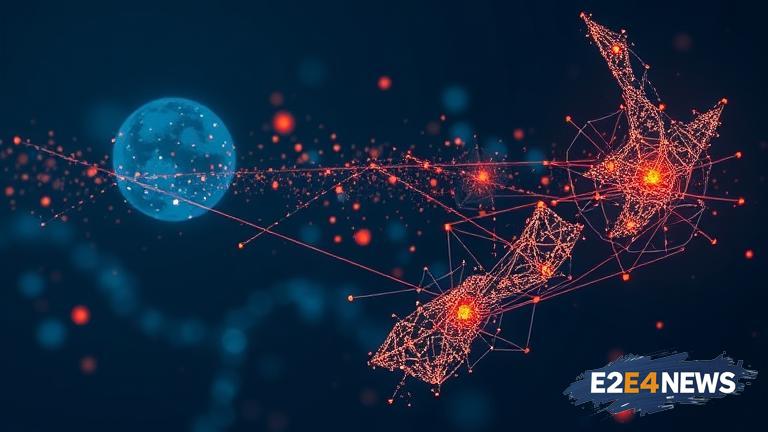The New Zealand government has announced plans to replace the NCEA with a new assessment system, and AI is expected to play a crucial role in its development. According to experts from Stanford University, AI can aid in the creation of more personalized and effective learning experiences for students. The new system aims to provide a more comprehensive and nuanced assessment of student abilities, moving away from the traditional multiple-choice question format. AI-powered tools will be used to analyze student data and provide real-time feedback, enabling teachers to tailor their instruction to meet the unique needs of each student. This approach is expected to improve student outcomes and reduce the administrative burden on teachers. The use of AI in education is not new, but its application in the NCEA replacement is a significant development. AI has the potential to revolutionize the way students learn and teachers teach, making the education system more efficient and effective. The Stanford experts believe that AI can help identify areas where students need extra support, allowing for early intervention and remediation. Additionally, AI-powered adaptive assessments can adjust the difficulty level of questions in real-time, ensuring that students are challenged but not overwhelmed. The new system will also provide students with more autonomy and agency over their learning, enabling them to take ownership of their educational journey. Furthermore, AI can help reduce bias in the assessment process, ensuring that all students have an equal opportunity to succeed. The development of the new system is a collaborative effort between the New Zealand government, education experts, and technology providers. The project is expected to take several years to complete, with the first phase focusing on the development of AI-powered assessment tools. The second phase will involve the integration of these tools into the new assessment system, with the goal of having the system fully operational by 2025. The use of AI in the NCEA replacement has been welcomed by educators and experts, who believe it has the potential to transform the education system. However, there are also concerns about the potential risks and challenges associated with the use of AI in education, including issues related to data privacy and security. To address these concerns, the government has established a task force to oversee the development of the new system and ensure that it is aligned with the country’s education goals and values. The task force will also provide guidance on the ethical use of AI in education and ensure that the new system is transparent, accountable, and fair. In conclusion, the integration of AI in the NCEA replacement is a significant development that has the potential to revolutionize the education system in New Zealand. With its ability to provide personalized learning experiences, reduce bias, and improve student outcomes, AI is set to play a crucial role in shaping the future of education in the country. As the project progresses, it is essential to address the potential risks and challenges associated with the use of AI in education, ensuring that the new system is aligned with the country’s education goals and values. The success of the project will depend on the collaboration and cooperation of all stakeholders, including the government, education experts, technology providers, and the wider community. By working together, New Zealand can create a world-class education system that prepares students for success in the 21st century. The use of AI in education is a global trend, and New Zealand is at the forefront of this development. The country’s education system is recognized for its innovation and excellence, and the integration of AI in the NCEA replacement is expected to further enhance its reputation. As the project progresses, it is expected to attract international attention, with educators and experts from around the world looking to New Zealand for inspiration and guidance. The development of the new system is a significant investment in the country’s education system, and it is expected to have a positive impact on the economy and society as a whole. By providing students with the skills and knowledge they need to succeed, the new system will help to drive economic growth and prosperity, making New Zealand a more competitive and attractive destination for businesses and investors. In addition, the new system will help to promote social mobility and reduce inequality, ensuring that all students have an equal opportunity to succeed, regardless of their background or circumstances. The integration of AI in the NCEA replacement is a significant step forward for New Zealand’s education system, and it is expected to have a lasting impact on the country’s future. With its ability to provide personalized learning experiences, improve student outcomes, and reduce bias, AI is set to play a crucial role in shaping the future of education in New Zealand. As the project progresses, it is essential to ensure that the new system is aligned with the country’s education goals and values, and that it is transparent, accountable, and fair. By working together, New Zealand can create a world-class education system that prepares students for success in the 21st century.





